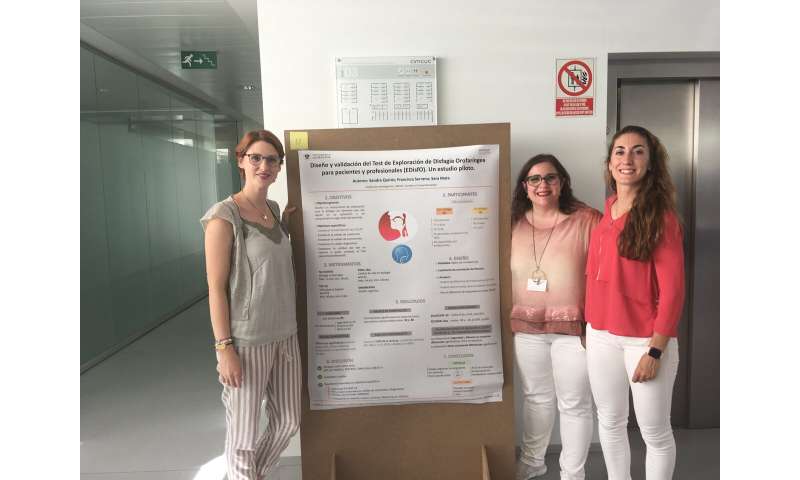The first test to detect dysphagia in patients with cognitive problems


Researchers from the Mind, Brain and Behaviour Research Centre (CIMCYC) of the University of Granada (UGR) have designed a test to detect dysphagia, a disorder that prevents people from swallowing when eating. It affects 8 percent of the world’s population.
Dysphagia is prevalent among older people in particular (30 percent to 40 percent of the elderly people admitted to hospitals or care homes) and patients with neurological or neurodegenerative disorders and diseases such as Alzheimer’s, Parkinson’s or multiple sclerosis, amyotrophic lateral sclerosis, cerebral palsy or strokes.
This difficulty in swallowing is due to the fact that the process of passing food or liquids from the mouth to the stomach requires more time and effort for these patients. Many die from aspiration pneumonia as a result of dysphagia. Yet dysphagia remains underdiagnosed because many of these patients suffer from cognitive disorders and cannot respond to functional evaluation processes.
To address this, the UGR researchers have designed and validated an early detection test for oropharyngeal dysphagia—called EdisfO—for patients with preserved cognitive status (that is, with no cognitive problems) that has also proven valid in patients with impaired cognitive status. This is the first time an assessment measure has been designed that successfully addresses this need.
Source: Read Full Article